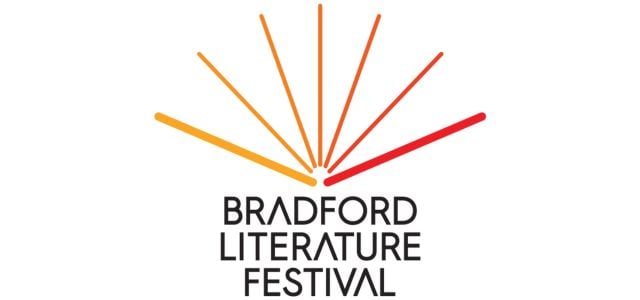The tenth annual Bradford Literature drew to close on Sunday 7 July following an eclectic and diverse 10 days of events, celebrating sold out shows, an ethical ticketing policy resulting in record footfall, and a commitment to inclusive programming, which showcased global voices and perspectives, and discussions and debates for all audiences.
Commenting on the 10-year anniversary festival, Founder, CEO and Artistic Director Syima Alam said: “This year has been an incredible milestone for BLF. I am incredibly proud of the festival’s growth into one of the top literature festivals in the UK and a truly international destination for both artists and audiences. The feedback has been overwhelmingly positive, affirming our mission to create a space for complex and critical conversations, whilst welcoming all into the world of words. The record ticket sales reflect this, as does the amazing response from a wide array of audiences, reflecting the rich tapestry of voices and perspectives we’ve brought together, celebrating our commitment to diverse and inclusive programming. I am really proud that the festival has evolved into a significant global cultural event and look forward to the next 10 years of innovation.”
Naz Shah, Member of Parliament for Bradford West, said of the festival: “Bradford Literature Festival has been amazing. I saw as much as I could whilst I was fighting for my general election, but two days after and I’m back here. It’s been absolutely amazing. The Doha Debates’ event was phenomenal, and well done to the festival for celebrating its 10th year. Seeing the festival on all the train stations across the country – King’s Cross, Birmingham New Street, Liverpool, London Waterloo – just seeing Bradford’s name in lights is such an achievement, and I’m so proud of what they’ve achieved here.”
Following sold-out events over the first weekend, including Lemn Sissay, Miriam Margolyes and Shaykh Hamza Yusuf, Bradford Literature Festival (BLF) continued its eclectic and diverse programming over the final week and weekend with highlight talks from the Palestinain Ambassador Husam Zomlot, two-time Grammy winner Corinne Bailey Rae, comedians Shaparak Khorsandi and Ruby Wax, historian Mary Beard, and vicar and journalist Kate Bottley.
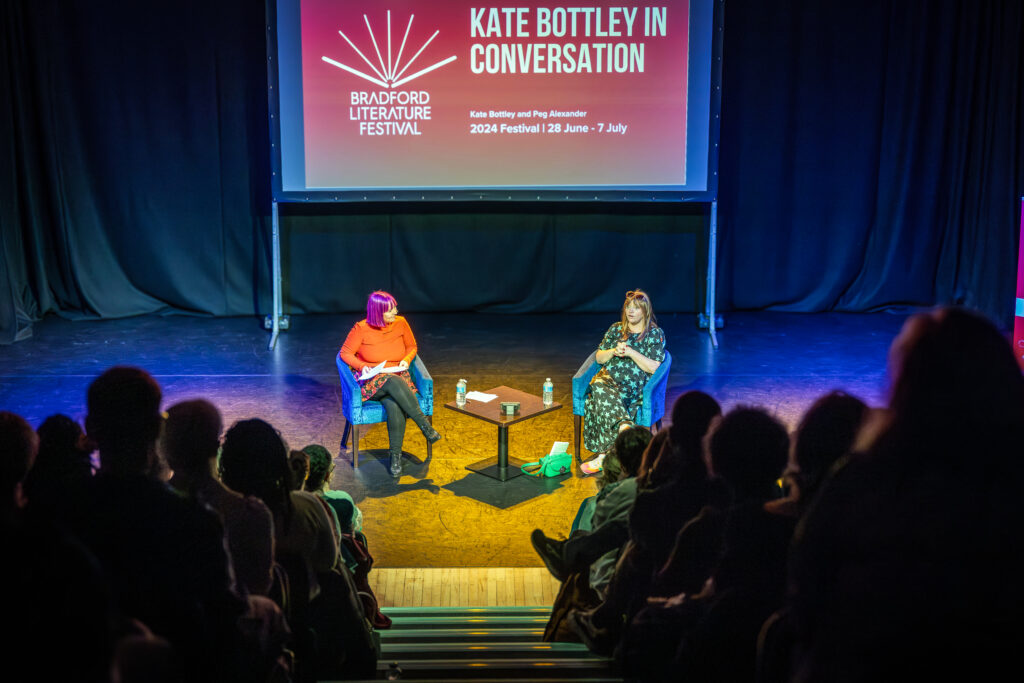
Fresh from performing at Glastonbury Festival, two-time Grammy-winner Corinne Bailey Rae returned to Yorkshire for a special midweek event at the majestic Bradford Cathedral with poet Malika Booker, speaking about the stories behind her latest album, Black Rainbows.
This event was co-produced with the British Library as part of Beyond the Bassline: 500 Years of Black British Music exhibition, which also hosted a conversation between award-winning DJ Paulette and producer Mykaell Riley, chaired by rapper Testament, on the history of Black British music. Riley commented on the hidden histories relating to the existence of Black musicians in Britain, citing John Blanke, a trumpeter of African descent who was favoured by King Henry VII and VIII, as evidence that there is “an African and Caribbean contribution to British music that goes back 500 years but it is not recognised.”
Tuesday’s headliners Kate Bottley and Ruby Wax spoke openly and candidly about their work to sold-out audiences. Bottley spoke honestly about faith and its implications for different people, and felt it important to say as vicar she does not have all the answers, “it’s called faith, it’s not called sure”. The evening was filled with a sense of willingness to discuss the changing landscape of Christianity and the church, discussing topics of equality and LGBTQ+ inclusion. Equally, Wax brought her trademark candour and humour to her discussion with Ramona Aly, where she opened up about personal experiences with depression and bipolar disorder, crediting the removal of social media and phones during a silent retreat as being one of the most impactful steps towards practicing mindfulness.
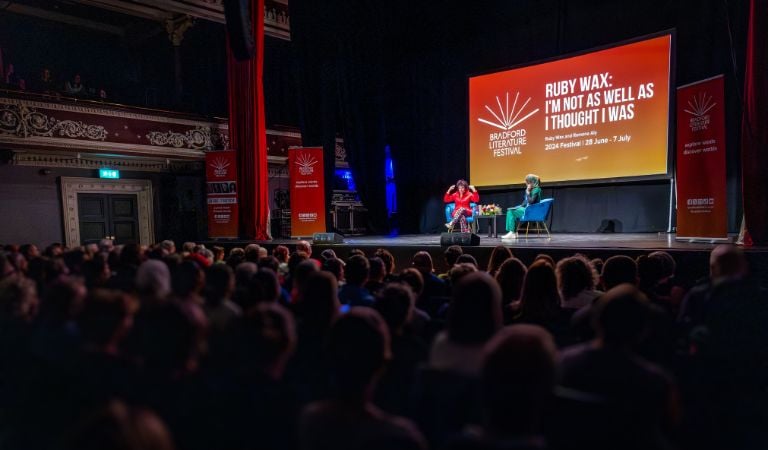
Discussions around mental health and differing global perspectives on wellbeing were reflected across BLF’s programming, with an insightful exploration into Islamic teachings on depression from translator Shaykh Mahdi Lock, who discussed the causes and treatments of anxiety and other mental health illnesses according to the Quran. Psychiatrist and author David Healy looked to the future in his talk on prescription medication and antidepressants, asking questions of a society becoming increasingly dependent on “pills for positivity,” maintaining that doctors need to listen more to patients about changing their medication if it isn’t working; a patients’ experience and “motivation is worth more than a doctor’s expertise.”
Doctors’ struggles and the challenges facing the NHS were discussed in a frank and engaging conversation between Dr Ellen Welch, author of Why Can’t I See My GP?, and GP Dr Nighat Arif, in which they ascribed the primary issues affecting both patients and GPs in the UK to a lack of funding for the NHS, reminding audiences of the stark statistic that “every three weeks a doctor commits suicide in the UK.” Comedian Shaparak Khorsandi also headlined midweek, opening up on the positive impact ADHD therapy had on her, saying “it changed our lives, me getting therapy specifically for ADHD. It’s not the ADHD that’s the problem, it’s not knowing you have ADHD.”
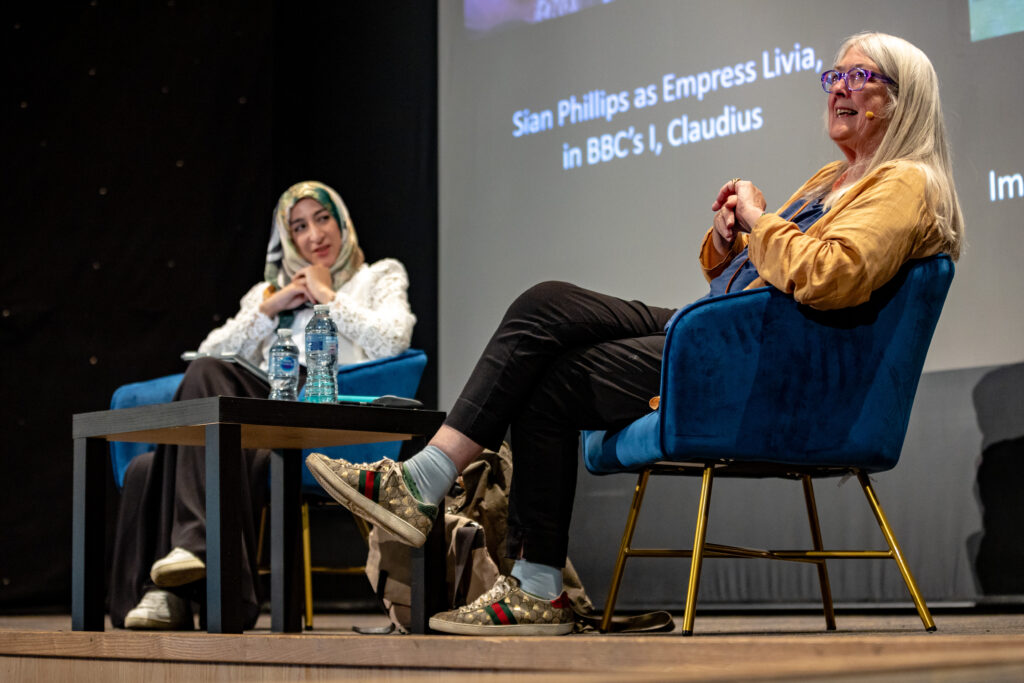
One of the UK’s favourite historians Mary Beard gave a lively yet scholarly insight into the emperors who ruled the Roman empire, from Julius Caesar to Alexander Severus, in a rousing conversation with Remona Aly, where she spoke meaningfully on the misogyny of the Roman Empire, commenting that historically “women always get the blame when things go wrong.”
Beard was also keen to remind audiences that “the past does not exist,” and that “history is a conversation,” where only the voices of those alive are able to partake. Throughout the festival, panellists and speakers across a range of events echoed this sentiment, with writer and historian Eleanor Medhurst similarly commenting on the role the present must play in educated itself on different historical narratives, and the dangers of reading history through a uniform Western lens. Medhurst spoke on a panel discussing the history of LGBTQ+ fashion and its evolution as a form of self-expression, resistance and identity, alongside poet and novelist Joelle Taylor, writer and Polari Prize-founder Paul Burston, and broadcaster Peg Alexander.
Doha Debates brought their town hall debate format to
the festival, with an international panel of journalists, broadcasters, authors and students. Chaired by journalist and broadcaster Remona Aly, the panel included Pakistani writer and journalist Fatima Bhutto, American journalist and blogger Steve Clemons, and author and comedian Konstantin Kisin.
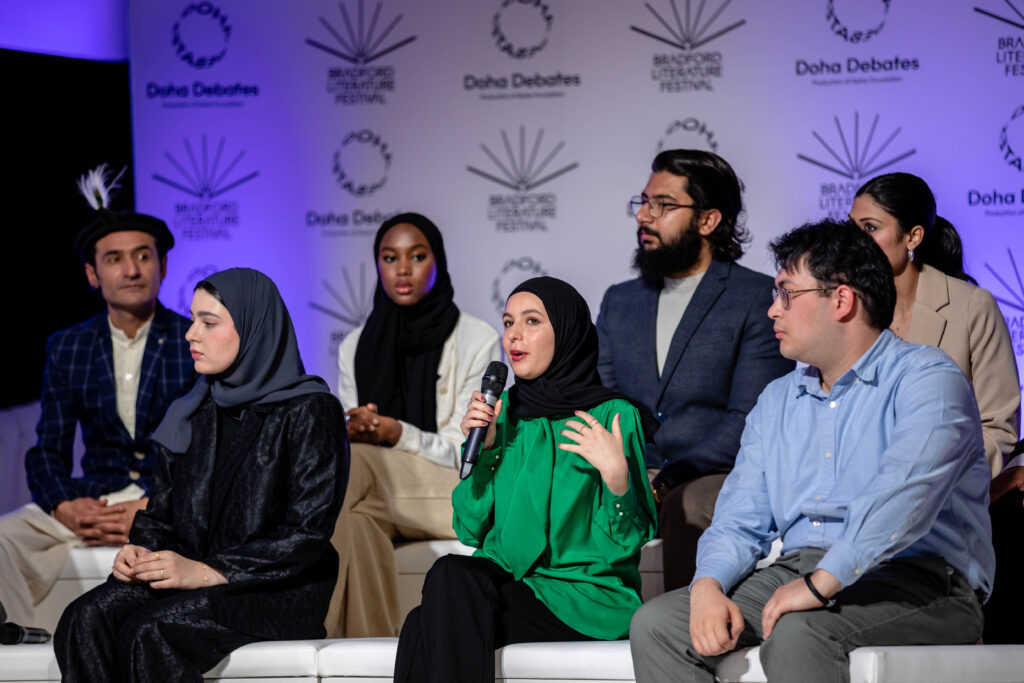
In a TV news-style set, the panellists and guests looked for consensus across a range of topics, including the West’s media coverage of international conflict, definitions of free speech, the future of social media and its impact on journalistic practices, and the media’s influence on creating political divides and partisanship.
Continuing the festival’s commitment to programming global voices and perspectives in dialogue, the Palestinian Ambassador to the UK Husam Zomlot spoke with Channel 4 Foreign Affairs Correspondent Secunder Kermani in a wide-ranging debate on the ongoing Israeli–Palestinian conflict, in which Zomlot reminded the audience of the importance of protecting the young, commenting that the “biggest challenge is to ensure our children do not grow with hate in their heart. They must grow up to love their country, more than they hate the others.”
Zomlot’s thoughts were echoed by American-British historian Marc David Baer in a talk on Islamophobia and Antisemitism alongside newly-elected MP Naz Shah, researcher Zahed Amanullah, sociologist Dr Keith Kahn- Harris and former Head of Religion and Ethics at the BBC and Channel 4 Aaqil Ahmed, in which he said that in the Arab world, Muslims and Jews lived alongside each other for “a thousand years and had good relationships.” A history of Jerusalem and its significance as one of the world’s oldest and most contested cities, holy to the three major Abrahamic faiths, was also discussed in a fascinating conversation between journalist Matthew Teller, historian Dr Abdul Rahman Azzam, and British-Palestinian fiction writer Selma Dabbagh.
On the 175th anniversary of the death of one of Bradford’s most famous literary daughters, Anne Brontë, the writer was recognised for her enduring feminist legacy and pioneering voice in Victorian literature by author Samantha Ellis, in a talk which highlighted her unflinching exploration of themes including domestic abuse, addiction and female agency. Brontë experts Adelle Hay, Nick Holland and Helen Miller also came together to discuss Agnes Grey, Anne’s debut book, and the damaging biographical prefaces, written by her sister Charlotte after her death, which have led to incorrect assumptions of the Anne’s character.
